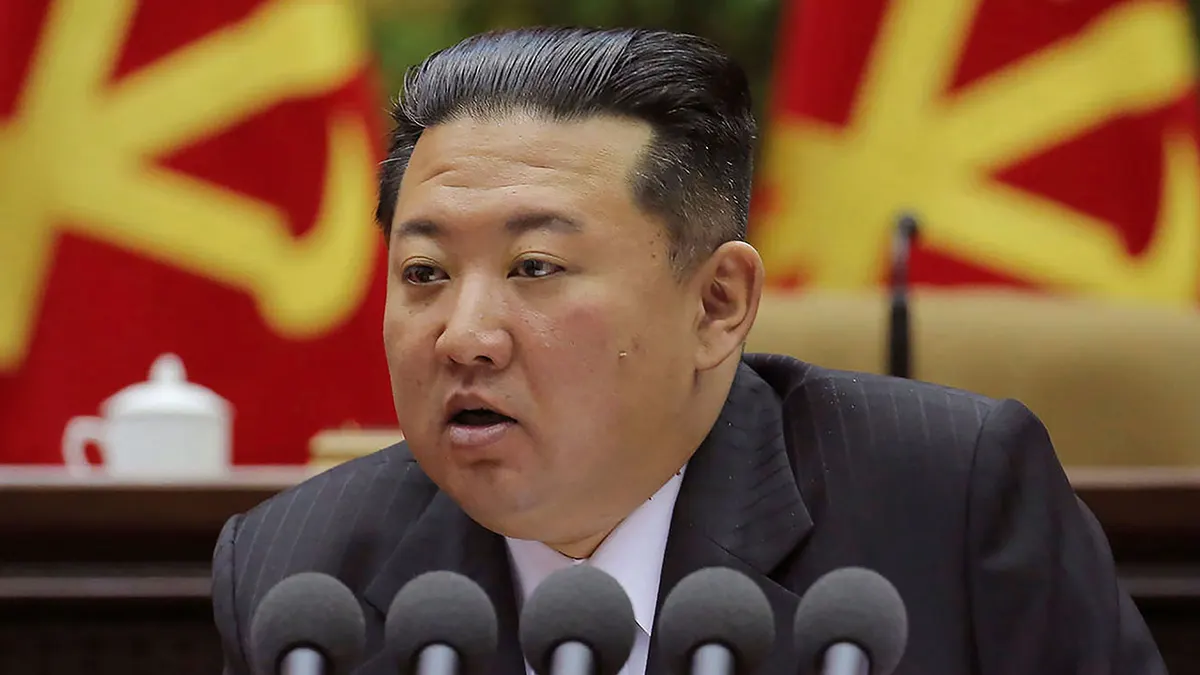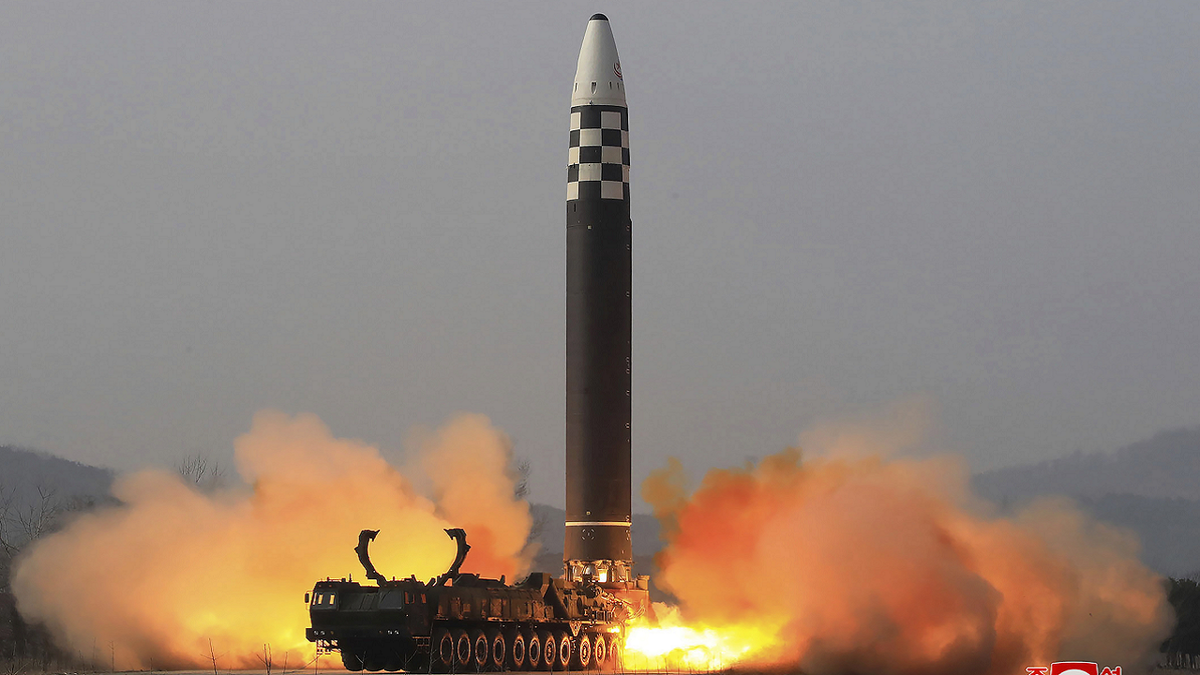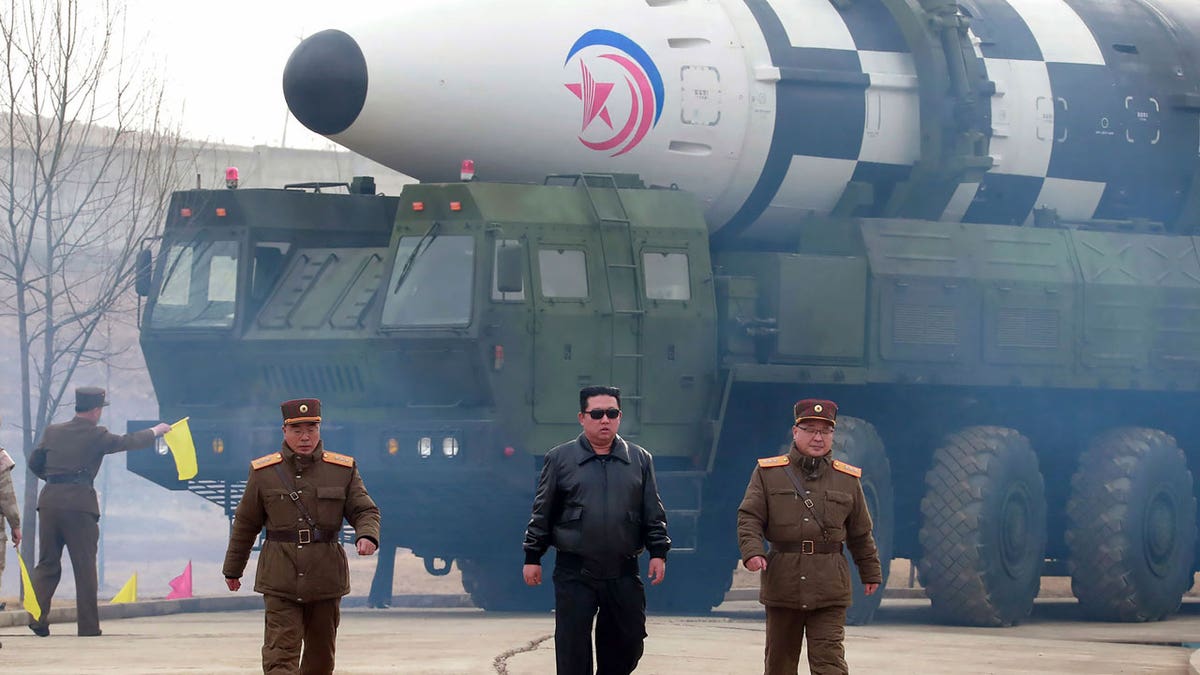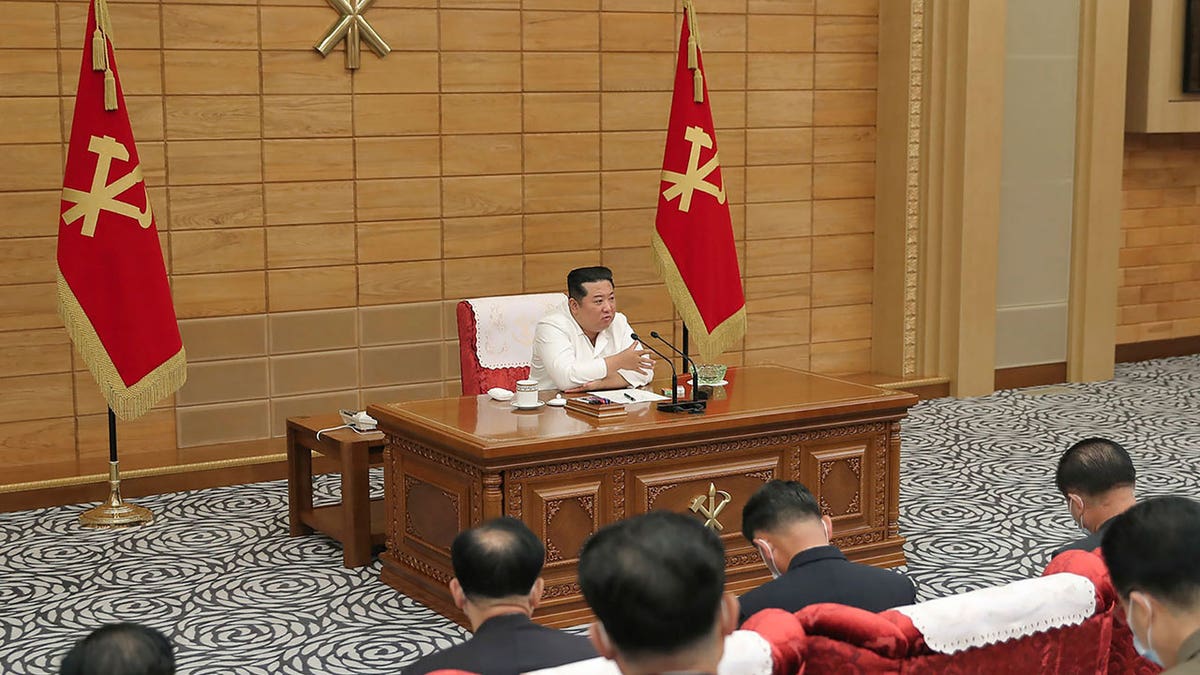VP Harris mistakenly touts US alliance with North Korea
The vice president's gaffe came one day after the rogue nation tested a ballistic missile.
North Korea has been ramping up its ballistic missile testing under the Biden administration, with former senior Trump administration officials warning that Pyongyang could launch a nuclear or ICBM test before the U.S. midterm elections.
North Korea fired two shorter-range ballistic missiles into the Sea of Japan on Thursday, just hours after Vice President Kamala Harris had toured the DMZ. The South Korean and Japanese militaries said the missiles traveled 180 to 217 miles. These are the fourth and fifth short-range ballistic missiles the DPRK has launched in the last five days as Harris has been visiting Japan and South Korea, and the Demilitarized Zone (DMZ).
Pyongyang conducted similar missile tests before President Biden visited Seoul in June.
But Biden administration officials announced earlier this year that North Korea had tested a new intercontinental ballistic missile (ICBM) system twice in 2022 — once on Feb. 26 and another on March 4. North Korea launched another ICBM on March 24, and in May, it launched what was possibly an ICBM.
The U.S. intelligence community, in its annual threat assessment, warned of North Korea’s "continued development of ICBMs" and its commitment to expanding the country’s nuclear weapons arsenal, as well as continuing ballistic missile research and development.

North Korean leader Kim Jong Un attends at a meeting of the Workers' Party of Korea in Pyongyang, North Korea, on Feb. 28, 2022. (Korean Central News Agency/Korea News Service via AP)
North Korea’s actions in January appeared to be movement toward "laying the groundwork for an increase in tensions that could include ICBM or possibly a nuclear test this year — actions that Pyongyang has not taken since 2017," the intelligence community wrote.
Former Deputy Assistant Secretary of Defense for East Asia Heino Klinck predicted this week that North Korea is "on the verge of a nuclear test or another ICBM test."
"Under the Trump administration, we were able to keep a lid on nuclear tests and ICBM tests," Klinck told Fox News. "If they repeat that cycle, that is an escalation and a provocation."
BIDEN ADMIN CONDEMNS NORTH KOREA MISSILE LAUNCH, SEEKS 'SERIOUS AND SUSTAINED DIPLOMACY' WITH DPRK
"I can envision one of those things, if not both, some time from mid-October to early November — before our midterm elections," Klinck said.
That time frame is "significant," Klinck explained, pointing to China’s 20th National Congress of the Chinese Communist Party is expected to take place in November, where Chinese President Xi Jinping is expected to be re-elected. That event is set to begin Oct. 16.

This photo distributed by the North Korean government shows what it says is a test-fire of a Hwasong-17 intercontinental ballistic missile (ICBM) at an undisclosed location in North Korea on March 24, 2022. (Korean Central News Agency/Korea News Service via AP)
"If there is a nuclear test or ICBM test, we’re the audience for that," Klinck said, noting that Kim Jong Un would not conduct a test to irritate China during that national party meeting. "We’re the intended audience."
Klinck added that North Korea is "continuing to test ballistic missiles, and quantitatively, there has been an absolute ramp up of testing ballistic missiles since Biden was inaugurated."
Former White House National Security Adviser under President Trump Amb. John Bolton told Fox News Digital that ICBM testing was "paused" during the Trump administration but pointed out that testing for short and medium-range ballistic missiles continued "regularly."
WHAT MADE NORTH KOREA TEST GIANT NEW ICBM?
Former President Trump held a historic summit with Kim Jong Un in June 2018.
"Launch testing is only the most visible part of a ballistic missile program," Bolton told Fox News. "Much of the DPRK’s missile R&D work (and its nuclear weapons work as well) takes place in underground facilities."
Bolton said that includes "warhead development, re-entry vehicle design and targeting systems."

North Korean leader Kim Jong Un, center, walks around a Hwasong-17 intercontinental ballistic missile (ICBM) on the launcher at an undisclosed location in North Korea on March 24, 2022. (Korean Central News Agency/Korea News Service via AP)
"As best we know, none of that DPRK effort was suspended or slowed during the Trump administration," Bolton said, but he acknowledged that Kim Jong Un "thought he could persuade Trump to make a deal favorable to North Korea, which he failed to do at the Hanoi Summit."
But Bolton similarly predicted that the weeks following China’s Party Congress, ahead of the midterm elections, could be a time for Kim Jong Un to "flaunt his nuclear capabilities."
The White House did not respond to Fox News’ request for comment on that potential timeline for North Korea to launch an ICBM or nuclear test.
US ISSUES NEW SANCTIONS AGAINST NORTH KOREA AFTER MISSILE TESTS
"We need to return to a policy of peace through strength, and that includes being proactive in our foreign and defense policy and ensuring that our adversaries realize we will impose costs on them if they cross certain red lines," Klinck told Fox News.
"A renewed nuclear test or an ICBM should be a red line for the United States," he said.
Reacting to the ballistic missile test this week, the White House said it did not pose "an immediate threat to the U.S. personnel or territory of our allies."

North Korean leader Kim Jong Un attends a ruling party's politburo meeting in Pyongyang, North Korea, on, May 29, 2022. (Korean Central News Agency/Korea News Service via AP)
"The United States condemns, as we have said many times when we have seen this behavior, the DPRK’s ballistic missile launches," White House press secretary Karine Jean-Pierre said. "The United States is committed to the defense of our allies, South Korea, Japan, and we continue to call on North Korea to engage in diplomacy as it relates to the vice president’s trip."
Meanwhile, Harris spoke at the Korean Peninsula’s DMZ on Thursday, and, in an unfortunate gaffe, said the U.S. has "a strong alliance" with "the Republic of North Korea."
"It is an alliance that is strong and enduring," she added, intending to refer to the Republic of Korea, which is South Korea’s official name.
CLICK HERE TO GET THE FOX NEWS APP
But with regard to the intensifying nuclear threat, former U.S. Ambassador to the United Nations Nikki Haley told Fox News that "this is a trend we are seeing around the world."
"When enemies sense weakness from America, they take advantage of it," Haley told Fox News. "We saw it with China taking Hong Kong, Russia invading Ukraine, and now North Korea making moves threatening the region."
She added: "When America is not strong, the world is less safe."
Fox News' Liz Friden contributed to this report.















































